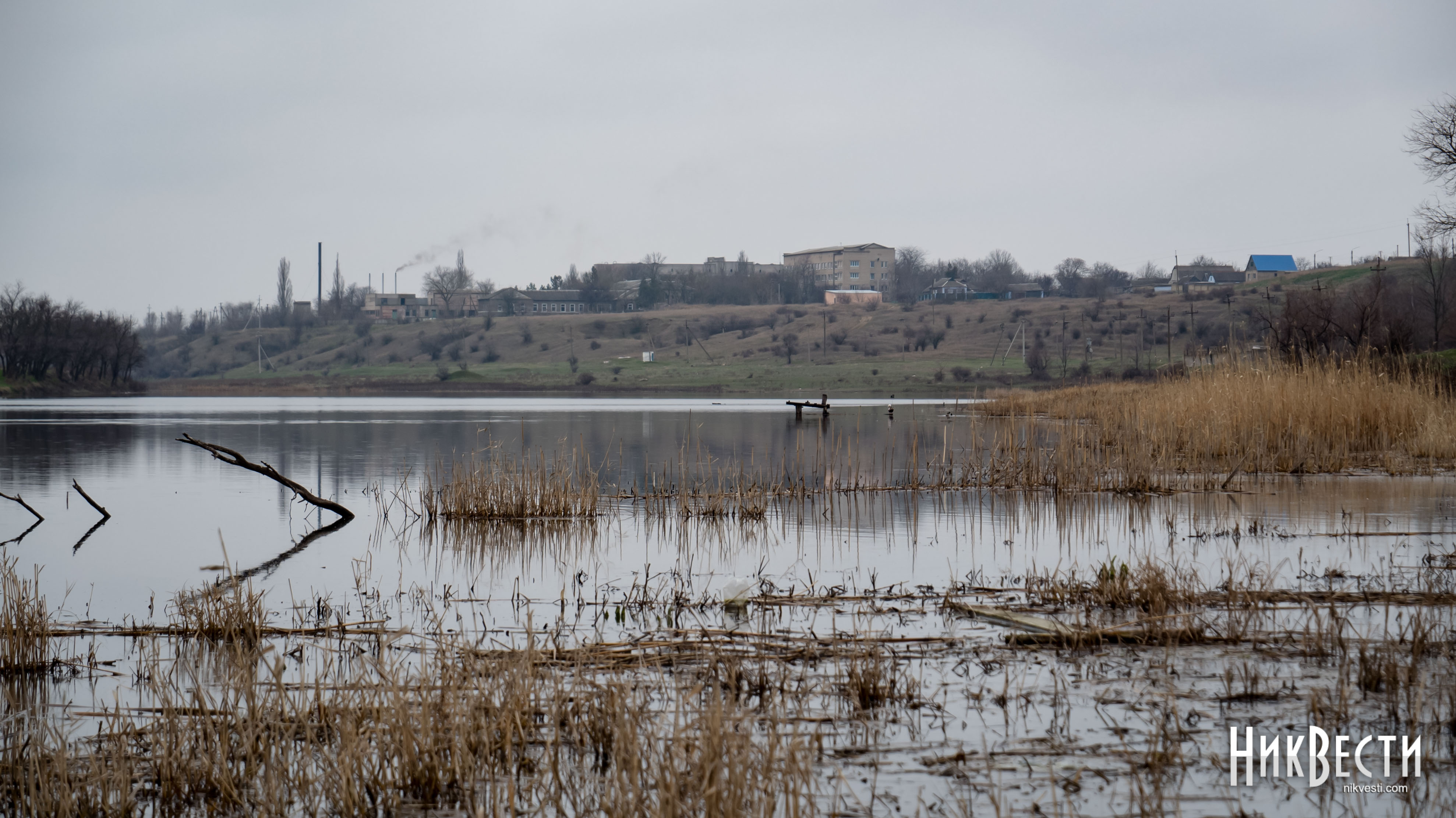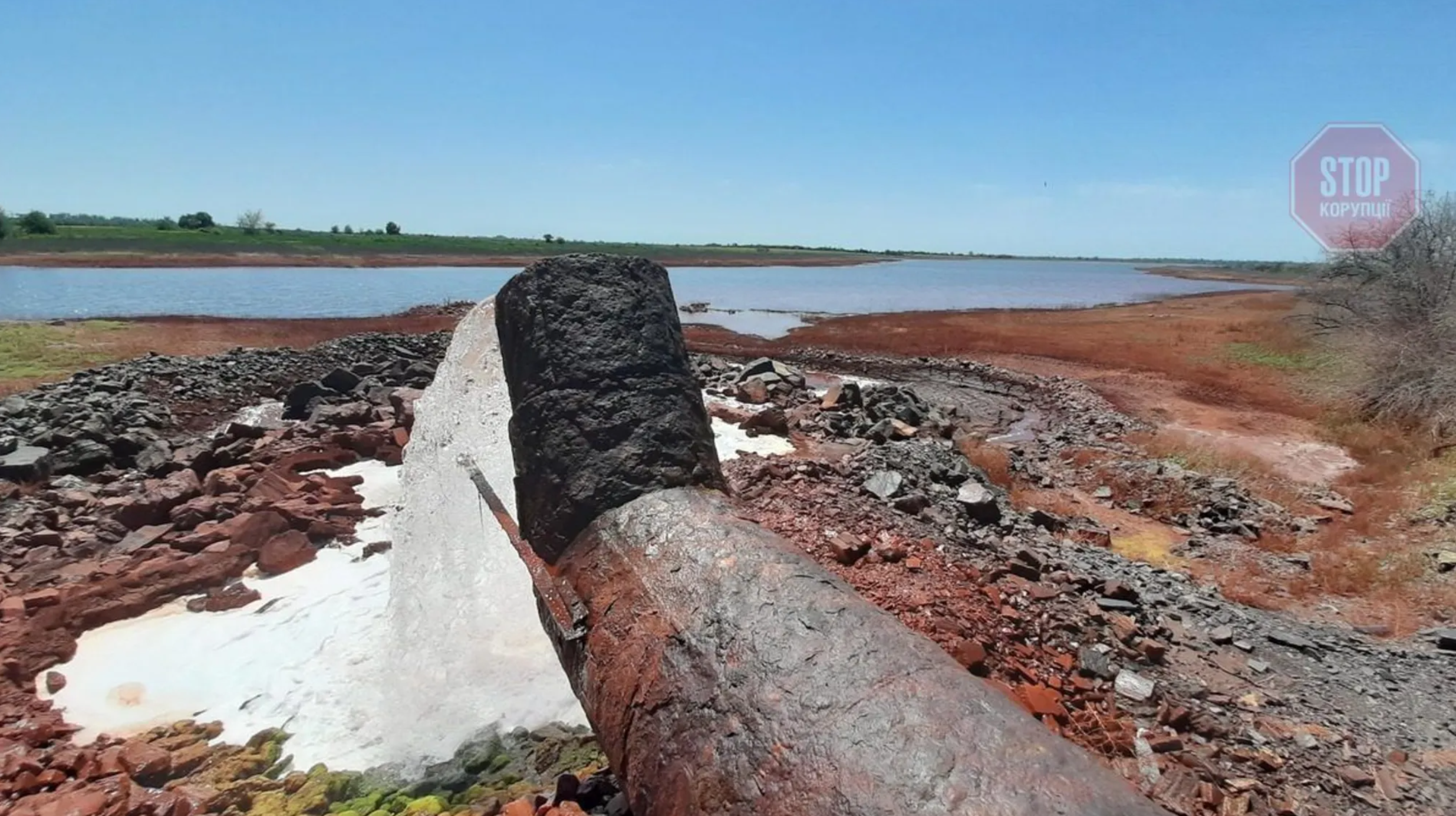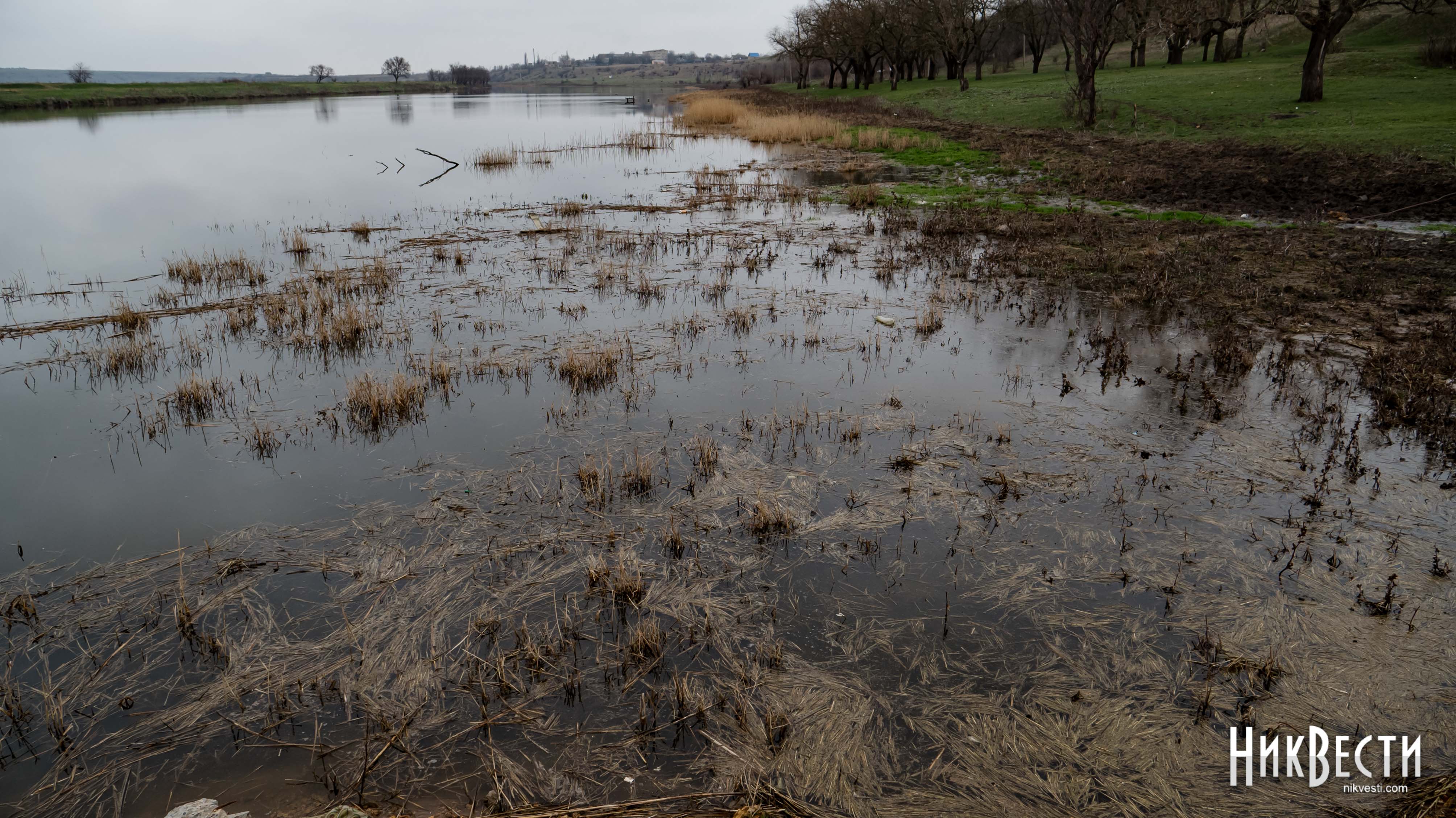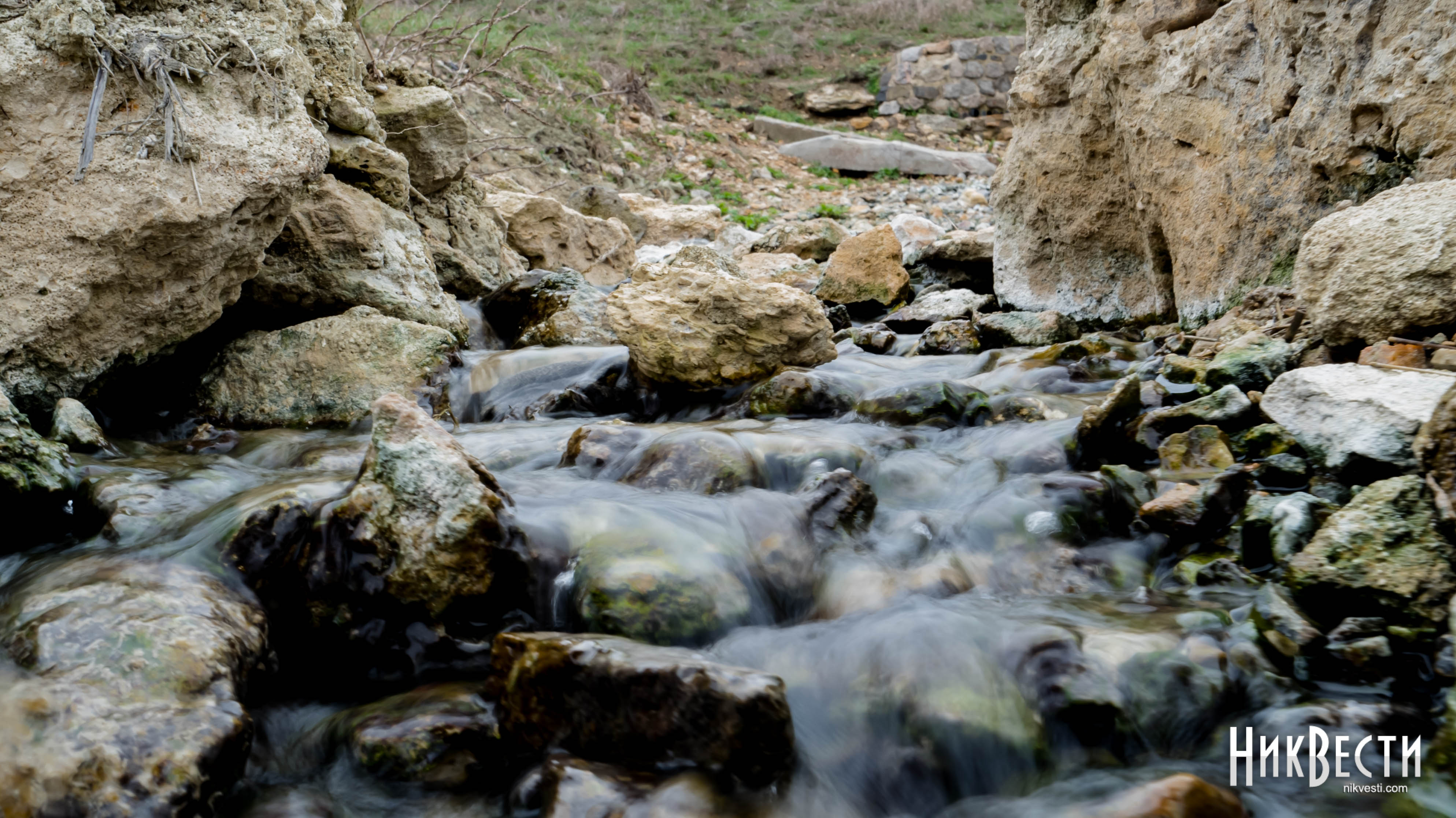Why is the water salty again in Mykolaiv? Explainer
- News of Mykolaiv
-
•
-

- Yuliia Boichenko
-
•
-
17:00, 22 March, 2024
Mykolaiv was left without water for some time after the Dnieper aqueduct was damaged. Later, salt water from the estuary was introduced into the network, and today the city receives river water. In terms of its quality, it is inferior to the Dnipro river, but it is still better than the Lyman river. In this way, almost half a million residents of Mykolaiv receive better quality technical water in their homes.
But from the beginning of March 2024, the people of Mykolaiv noticed that the quality of the water in the taps deteriorated — it became saltier and took on a more yellow color than usual. This situation persists to this day in all districts of the city.
What happened to the water in Mykolaiv, does its quality now threaten the health of the citizens and how to protect yourself from possible consequences — NikVesti explains.
Vodokanal talks about the man-made factor. What kind?
The municipal enterprise «Mykolaivvodokanal» commented on the deterioration of the quality of water in the citizens' taps only on March 15. They explained that the deterioration of water quality «is caused by natural and man-made factors», and also added that «there are no simple and quick solutions to such complex issues, but work in this direction continues».
«Some time ago, the management of RMA and the city announced information about a minor deterioration of water quality, increased salt content or an unpleasant smell. Residents of the city have already begun to notice the changes — unfortunately, they are caused by natural and man-made factors,» the water utility said.
It turned out that the state enterprise «Kryvbasshahtozakryttia», which is located upstream of the water intake for Mykolaiv, dumped water from its sumps into the river. The Cabinet of Ministers of Ukraine granted him permission to do this until March 15, 2024, as evidenced by the relevant order «On the discharge of excess return water into the Ingulets River». In fact, we are talking about water that, after use with the help of technical facilities, enterprises return to rivers in the form of sewage, mine, quarry or drainage water. In the order signed by Prime Minister Denys Shmyhal, it is stated that discharges are needed «to prevent the emergence of an emergency situation at the hydraulic facilities of the Kryvyi Rih Basin, in particular, which may arise as a result of terrorist acts by the aggressor state».
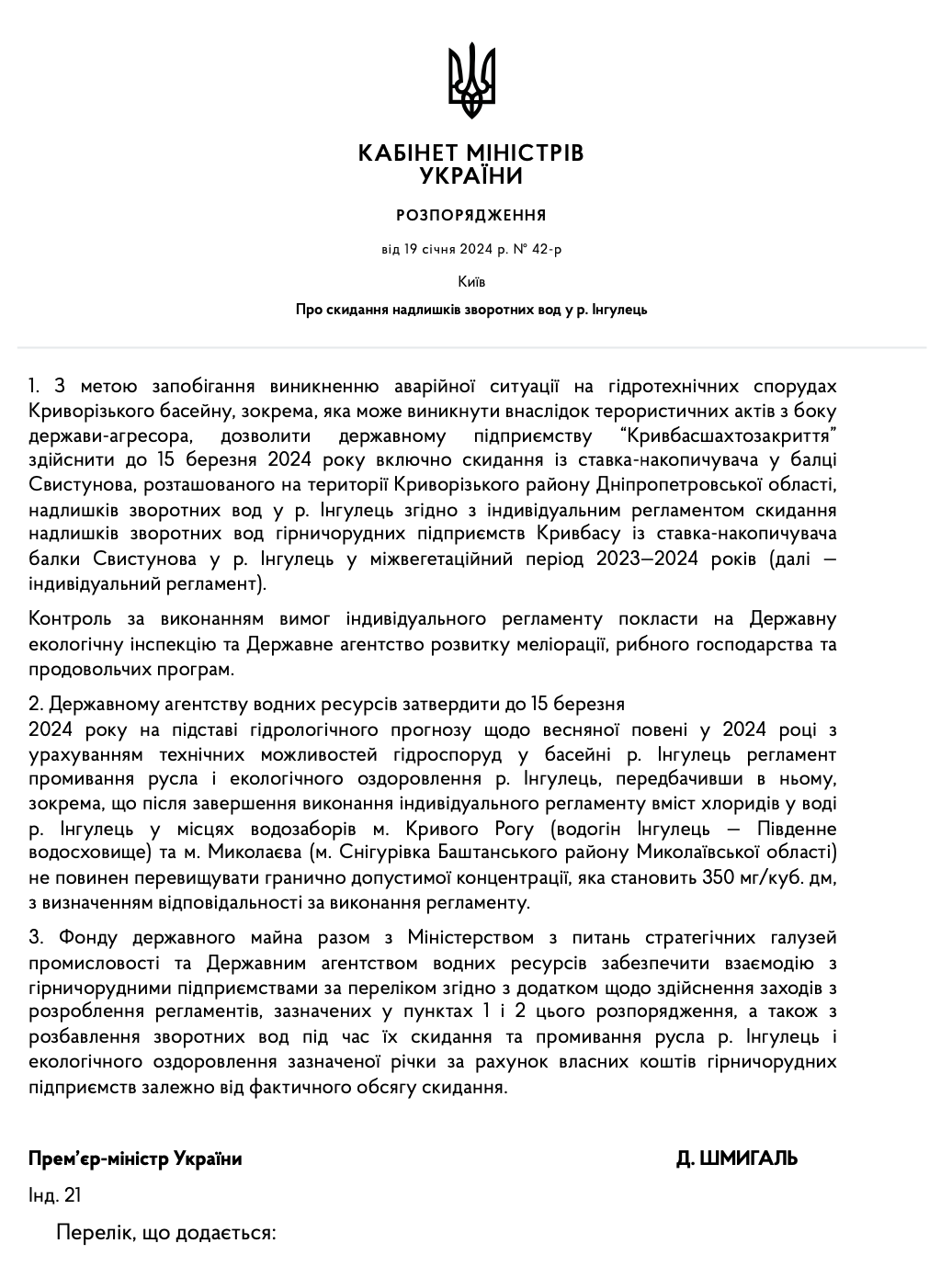 Screenshot of the Cabinet of Ministers of Ukraine «On discharging excess return water into the Ingulets River»
Screenshot of the Cabinet of Ministers of Ukraine «On discharging excess return water into the Ingulets River»Prior to this, a similar version was voiced by the deputy of the Mykolayiv City Council, Fedir Panchenko, in his comments to the article of NikVesti: «Speaking in simple words, the upstream enterprises dumped water from their sumps into the river».
In general, this process is planned and happens once every few years. According to data on the government's website, the last time the Cabinet of Ministers gave permission for the discharge of water was in December 2021, even before the full-scale invasion. Prior to that, such permission was granted in 2013, 2014, 2015, 2016 and 2018.
The discharge of mine waters into Inhulets takes place from the storage pond in the Svystunov creek, located in the territory of the Dnipropetrovsk region. The main condition from the Cabinet of Ministers is that the enterprise must comply with individual regulations. That is, the content of chlorides (salts, — note) in Inhulka, in the places of water intakes for Kryvyi Rih and Mykolaiv, should not exceed the maximum permissible concentration (MPC) of 350 milligrams per cubic decimeter (per liter, — note). For this purpose, mine waters must enter Ingulets together with fresh water, which would dilute them and reduce the percentage of mineralization.
From February 2024 to the present, specialists of the State Environmental Inspection of the South-Western District monitored water quality in Inhulka during the discharge of excess return water from Kryvbas mining enterprises, NikVesti reported there. During this period, the concentration of chloride ions ranged from 1,247 to 1,620 milligrams per liter, and according to the latest measurements, the concentration of chloride ions was 1,375 milligrams per liter. This is more than 4 times more than the maximum permissible concentration.
Of course, this water then enters the water treatment facilities, which filter it before supplying it to the homes of Mykolaiv residents. However, today we observe the deterioration of the quality of this tap water, as evidenced by its color, taste and smell. This may indicate that the water treatment facilities cannot cope with the amount of chlorides currently contained in the water.
Are discounts by Kryvbas enterprises legal?
The enterprise «Kryvbasshaktozakrytye» is engaged in the removal, accumulation and discharge of mine water of mining and ore enterprises in Kryvbas. And also by pumping household sewage. According to the company itself, the main suppliers of mine water are PJSC «ArcelorMittal Kryvyi Rih», PJSC «KZRK», PJSC «CGZK», PJSC «Sukha Balka».
Due to the mine waters of these enterprises, the condition of the Ingulets River is extremely unsatisfactory, the ex-head of the State Inspection of Ukraine Yehor Firsov commented in 2020.
«The discharge process is as follows: first, the mine water settles in a stream so that impurities settle, then this water is diluted with fresh water from the Kremenchug Reservoir, which reduces its mineralization and is discharged into the river in a less harmful manner. But, due to a violation of the technology, at one of the stages, it is highly mineralized water that gets into the groundwater,» Yehor Firsov explained.
Mineralization of waters reaches 100 grams per liter, while in the Black Sea — 17 grams per liter, Yehor Firsov added.
«Further, this water enters the fresh Inhulets River, and from it into the Dnipro, and actually destroys freshwater living organisms there. And this affects the ecological situation in Dnipropetrovsk, Kirovohrad, Mykolaiv and Kherson regions, first of all, the ability to conduct agriculture, that is, it is an urgent environmental problem,» said the ex-head of the State Inspectorate.
In addition, back in 2018, the State Agency for Water Resources informed Kryvbasshahtzakryttia about the need to obtain a permit for special water use when discharging return water into Inhulets. However, this was not done.
For this reason, in 2021, the State Inspectorate appealed to the court. Then, during the inspection of the enterprise, state ecologists recorded the discharge of pollutants into Ingulets without the appropriate permit and calculated 2.5 million hryvnias in damages. These funds had to be collected through the court, as the company refused to pay them.
«Violation of mine water disposal technology threatens the ecological safety of the entire region, because water from Ingulets is used for drinking and for irrigation of fields. And this means that the dangerous substances contained in it pose a threat to people,» the State Inspectorate said at the time.
However, during a new inspection of «Kryvbasshachtzakryttia» in 2022, the State Environmental Inspection again found violations, among them:
- the enterprise discharges excess return water without permits;
- while operating the storage pond, the enterprise does not implement effective technologies to reduce the content of pollutants. In fact, not only mine water, but also sewage, storm water, and drainage water enter the Svystunov stream;
- the company does not keep state records of water use, which is approved by the order of the Ministry of Ecology and Natural Resources of Ukraine.
Are chlorides dangerous for humans?
Chlorides are salts that contain chlorine and other elements such as sodium, potassium, and magnesium. Chlorides in water can appear naturally, for example, if water passes through soil or rock formations that contain chlorides. However, water can often be contaminated with chlorides due to industrial emissions, discharges from water treatment plants or the use of de-icing salts on roads.
According to both international and Ukrainian sanitary standards, the maximum chloride content in drinking water should not be more than:
- 250 milligrams per liter for tap and bottled water;
- 350 milligrams per liter for water from wells, catchments, wells, and can also be set for water supply in certain areas.
Chlorides in small quantities are not dangerous for human health and are even necessary to maintain the normal functioning of the body. They contain many important minerals such as sodium, potassium and magnesium. However, high levels of chloride in drinking water can lead to a variety of problems, such as corrosion of metal pipes, damage to equipment, and changes in the taste of water.
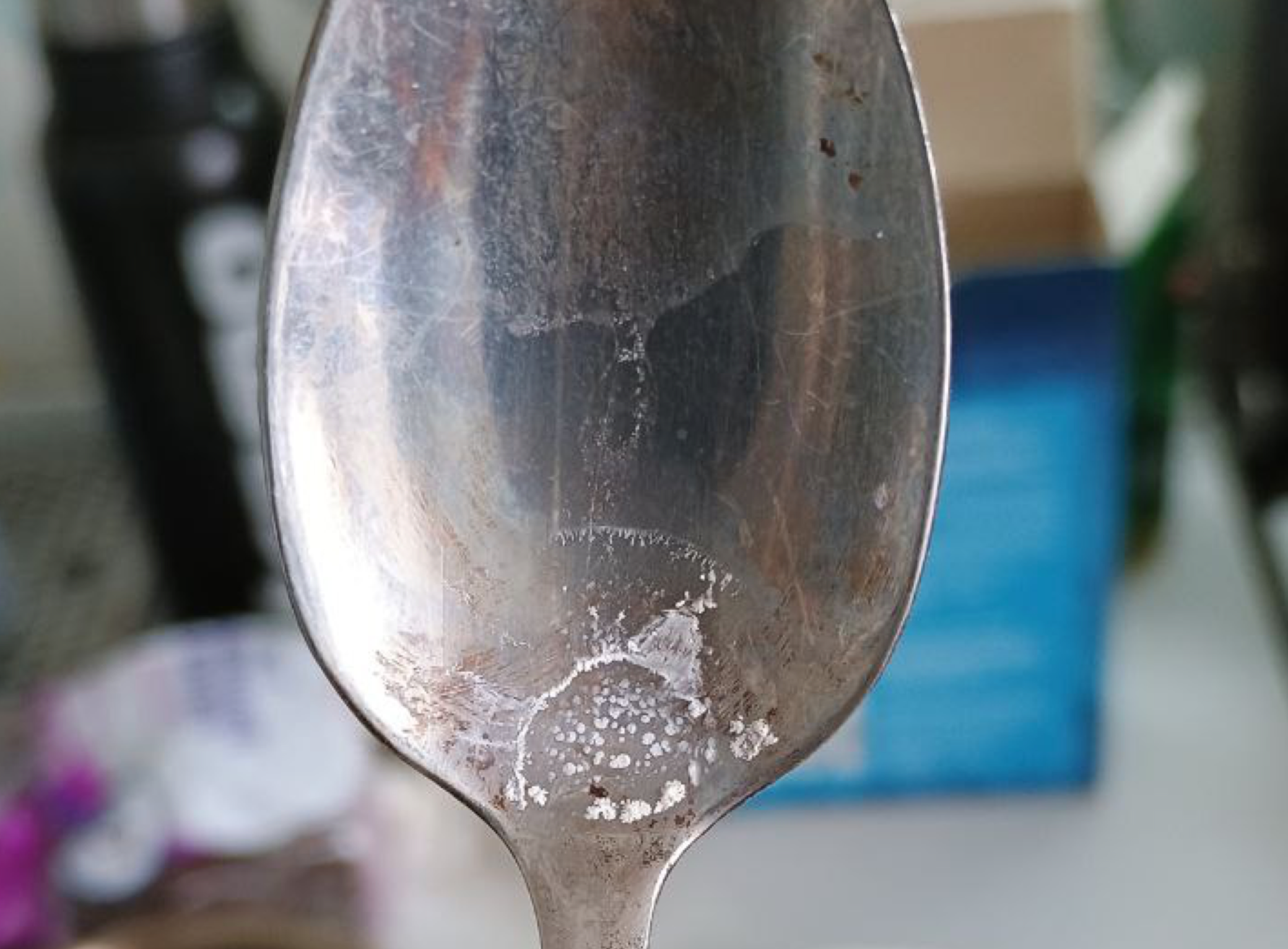 Residues of salts on a spoon after using tap water in Mykolaiv, March 2024, photo provided by NikVesti readers
Residues of salts on a spoon after using tap water in Mykolaiv, March 2024, photo provided by NikVesti readersThat is, the quality of water in Mykolaiv by itself, under the condition of increased chlorides, cannot harm the health of a person who uses it as a technical one, ecologist Inna Tymchenko tells NikVesty. However, she added, the situation can be dangerous if the water contains toxic elements or has bacterial contamination.
«Even before that (before the release of mine water into the Ingulets River, — note) the chloride content was high in our country, it does not affect health much. We don't drink this water, and the fact that it gets on the dishes is not scary. You can't drink it, because stomach upsets can occur, usually some short-term consequences. What is the bacterial composition there or the presence of some toxic elements that can affect a person - it is only necessary to conduct analyses. But under such conditions, it will not be possible to wash dishes or wash with this water,» said Inna Tymenko.
How to protect yourself if there are chlorides in the water?
One of the ways to reduce the concentration of chlorides in water is reverse osmosis. This is a state-of-the-art filter that removes contaminants from unfiltered water by applying pressure that forces the water to pass through a semi-permeable membrane. Water flows from the more concentrated side of the membrane (more contaminants) to the less concentrated side (less contaminants). The semi-permeable membrane has small pores that block contamination and allow only water molecules to flow through them.
This technology is suitable both for domestic conditions and for industry. A household reverse osmosis system can retain 99.9% of water impurities, including chlorides and sulfates of sodium, potassium, calcium, magnesium, and heavy metals.
However, reverse osmosis has certain water requirements. It is not recommended to use the reverse osmosis system if the water parameters exceed the established norms. In order to determine whether the water is suitable for purification by the reverse osmosis system, it is necessary to conduct an analysis of this water. If it does not meet the requirements, then it is necessary to use other filters for pre-treatment: filters for complex water purification, water softening and mechanical water purification systems.
Water quality can also be improved by ion exchange. Filters of this plan remove calcium and magnesium salts, thereby ensuring the softness of the water. They have a good effect on the work of household appliances and plumbing, preventing breakdowns and extending their service life. Additionally, they get rid of metals and minerals. But, at the same time, they do not make water safe for people. Water that has been treated in this way can be bitter and have a bad effect on the work of the gastrointestinal tract and biliary tract.
Another option is ozonation. Processing aimed at disinfection, that is, at the fight against bacteria, viruses, fungi, parasites and algae. Ozone is a powerful oxidizer. This method is notable for its increased efficiency, but ozone filters require large amounts of electricity. It also does not provide for the removal of heavy metals, minerals and pesticides, and therefore cannot be used independently to obtain drinking water.
As you can see, the concentration of chlorides in the Ingulets River has increased more than four times higher than the norm since mine waters were discharged into it. Experts say that such water cannot significantly affect a person's health, but the main condition for this is that a person should not consume it and should use it purely for technical needs, such as, for example, washing dishes. Toxins and bacteria, which can potentially be contained in the water of Ingulets after the discharge of mine waters into the river, can pose a greater danger to Mykolaiv residents. However, such water poses quite a threat to the city's water supply networks and household appliances - from electric kettles to washing machines, boilers, dishwashers, etc. It leads to their premature failure, creates a threat of accidents and fires.
Therefore, under any conditions, residents of Mykolaiv should think about how to protect themselves from the risks that the Ingulets water carries today.
Yuliia Boichenko, NikVesti
The work on this material became possible thanks to the Fight for Facts project, which is implemented with the financial support of the Federal Ministry of Economic Cooperation and Development of Germany.


